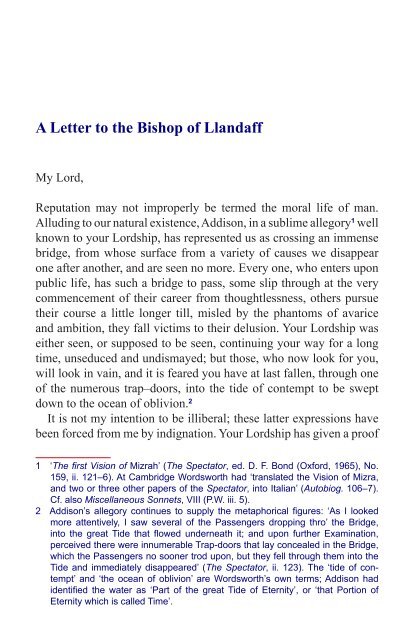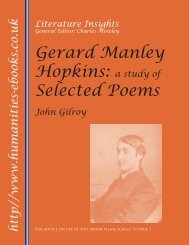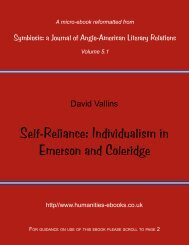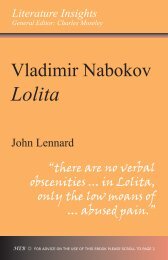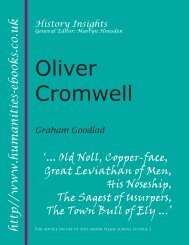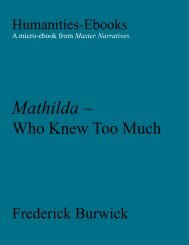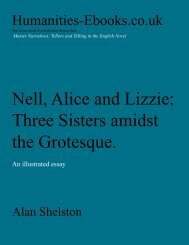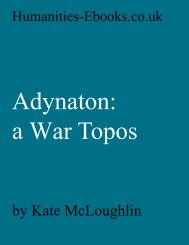Wordsworth's Political Writings - Humanities-Ebooks
Wordsworth's Political Writings - Humanities-Ebooks
Wordsworth's Political Writings - Humanities-Ebooks
You also want an ePaper? Increase the reach of your titles
YUMPU automatically turns print PDFs into web optimized ePapers that Google loves.
A Letter to the Bishop of Llandaff<br />
My Lord,<br />
Reputation may not improperly be termed the moral life of man.<br />
Alluding to our natural existence, Addison, in a sublime allegory well<br />
known to your Lordship, has represented us as crossing an immense<br />
bridge, from whose surface from a variety of causes we disappear<br />
one after another, and are seen no more. Every one, who enters upon<br />
public life, has such a bridge to pass, some slip through at the very<br />
commencement of their career from thoughtlessness, others pursue<br />
their course a little longer till, misled by the phantoms of avarice<br />
and ambition, they fall victims to their delusion. Your Lordship was<br />
either seen, or supposed to be seen, continuing your way for a long<br />
time, unseduced and undismayed; but those, who now look for you,<br />
will look in vain, and it is feared you have at last fallen, through one<br />
of the numerous trap–doors, into the tide of contempt to be swept<br />
down to the ocean of oblivion. <br />
It is not my intention to be illiberal; these latter expressions have<br />
been forced from me by indignation. Your Lordship has given a proof<br />
‘The first Vision of Mizrah’ (The Spectator, ed. D. F. Bond (Oxford, 1965), No.<br />
159, ii. 121–6). At Cambridge Wordsworth had ‘translated the Vision of Mizra,<br />
and two or three other papers of the Spectator, into Italian’ (Autobiog. 106–7).<br />
Cf. also Miscellaneous Sonnets, VIII (P.W. iii. 5).<br />
Addison’s allegory continues to supply the metaphorical figures: ‘As I looked<br />
more attentively, I saw several of the Passengers dropping thro’ the Bridge,<br />
into the great Tide that flowed underneath it; and upon further Examination,<br />
perceived there were innumerable Trap-doors that lay concealed in the Bridge,<br />
which the Passengers no sooner trod upon, but they fell through them into the<br />
Tide and immediately disappeared’ (The Spectator, ii. 123). The ‘tide of contempt’<br />
and ‘the ocean of oblivion’ are Wordsworth’s own terms; Addison had<br />
identified the water as ‘Part of the great Tide of Eternity’, or ‘that Portion of<br />
Eternity which is called Time’.


